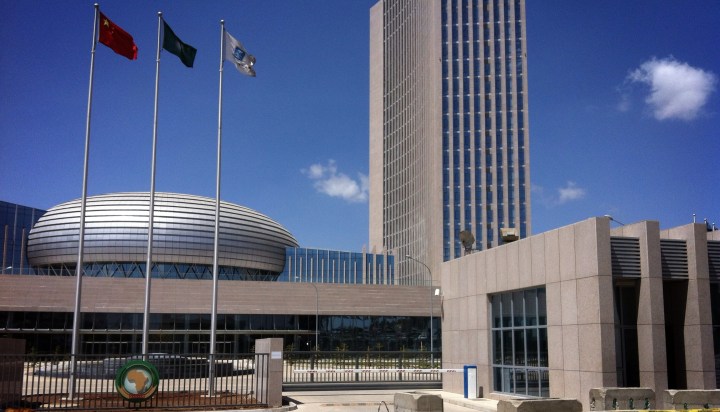ISS TODAY OP-ED
African nations must define shared principles, values as united front to meaningfully participate in G20

Joining the global forum presents political, cultural and technical challenges for the AU, which has been relatively inward-looking.
In recent months, several non-African actors have expressed their wish to see the African Union (AU) represented in the Group of 20 (G20), a forum for international economic cooperation among industrialised countries. This is a laudable recognition of the strategic importance of Africa and the AU in particular.
At the AU’s February summit, African leaders decided that the body would represent the continent in the G20 alongside South Africa, which is a member in its own right.
The momentum for Africa’s representation in formal and informal global governance forums has never been higher. Most United Nations (UN) Security Council permanent members also claim to favour permanent African representation on the council.
But are the AU and its member states ready to meaningfully participate in the G20, where collective solutions to the world’s economic and development challenges, and not just Africa’s problems, are discussed?
African countries have often justified their quest for representation in global governance bodies from the perspective of equity, inclusivity and alleged historical injustice. Rightly so, but with a collective GDP comparable to France’s, hard power in Africa is in short supply. Meaningful participation would require substantial changes in how the AU operates, particularly the division of labour between the AU Commission and member states.
Being part of a global forum like the G20 would require the AU to have clear positions on world issues it hasn’t focused on before because they don’t directly relate to Africa. For example, what is the AU’s stance on North Korea’s nuclear programme? Where does it stand on problems emanating from the dislocation of the Soviet empire? And how will it mediate an African position on issues that its 54 members disagree on, such as Israel’s accreditation to the AU?
Becoming a G20 member would be a political, cultural and technical challenge for an organisation that has been relatively inward-looking. The AU would need to put in place working methods that allow — or force — its members to acknowledge the positions they agree on at summits. This hasn’t always happened. For example, the AU includes a state (Western Sahara) that is recognised by only a third of its membership.
Many political challenges face the AU’s G20 membership. It would be the first time an inter-governmental organisation was invited to join a global forum like the G20. The privilege has never been extended to the Association of Southeast Asian Nations, Arab League or Community of Latin American and Caribbean States. So far, only the European Union (EU) has been approached, and unlike the others, it is a supra-national organisation.
Because EU member states have agreed to transfer some of their sovereign rights to the union, it has developed what is often referred to as acquis communautaire — an aggregated body of laws and obligations. This outlines the modes of collective decision-making, which sometimes require a vote.
As an inter-governmental organisation whose member states are sometimes suspicious of the Commission chair, the AU would need to develop procedures enabling the Commission to take initiatives on global matters. This would eventually contribute to changing the political culture of the AU and allow the Commission and its chair more room to manoeuvre.
The AU would also have to break with the non-written, but deeply entrenched principle of consensus that bans voting from decision-making. Polls are a valuable way to create majorities while taking on board the views of minorities. The process forces actors to negotiate, build alliances and compromise on workable consensus. Resorting to qualified majority votes often protects smaller and medium-sized countries, and regional powers, who fear being outvoted.
To fully participate in the G20, the AU chairperson’s office would probably need a team of experts — led by a sherpa — to study and develop African positions on global economic and development issues. The sherpa track is one of the key operating modes within the G20 and would be the most important for the AU.
Meaningful African participation in global governance bodies depends on the resources African countries are ready to channel towards those forums. But beyond the perennial question of AU funding, the AU Commission needs the human resources capacity for strategic planning.
To support the AU chairperson at the G20, the Commission’s recruitment practices would have to be guided less by geographic representation and more by a strategic view of what the AU aims to achieve. As the chairperson’s G20 team would operate on the global stage, filling those unelected high-level positions should reflect the highest standards of professionalism.
The AU’s current preparations for joining the G20 call for deep reflection about the type of international actor it wants to be. African states need to define their shared interests and the principles and values they wish to project.
The war in Ukraine has tested the continent’s consistency on key principles enshrined in the AU Constitutive Act and the UN Charter. There is a risk that opportunities for more responsibility at the global level wouldn’t benefit Africa. DM
Paul-Simon Handy, Institute for Security Studies (ISS) Regional Director East Africa and Representative to the AU and Félicité Djilo, Independent Analyst.
First published by ISS Today.


















 Become an Insider
Become an Insider
Khartoum, Libya, Somalia, DRC, Mali, Zim – collapsing and collapsed infrastructure, increasing levels of illiteracy and preventable diseases like cholera, corruption and chaos everywhere: the AU should be dissolved as it will never be taken seriously! Another trough is what it is.